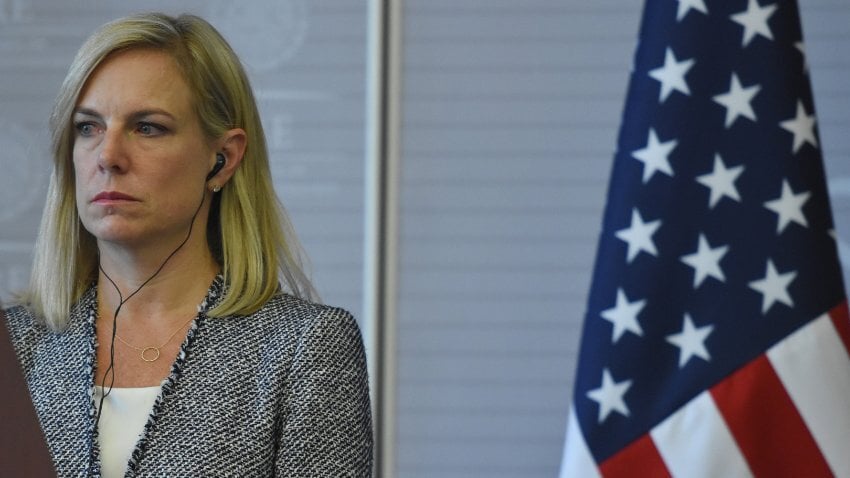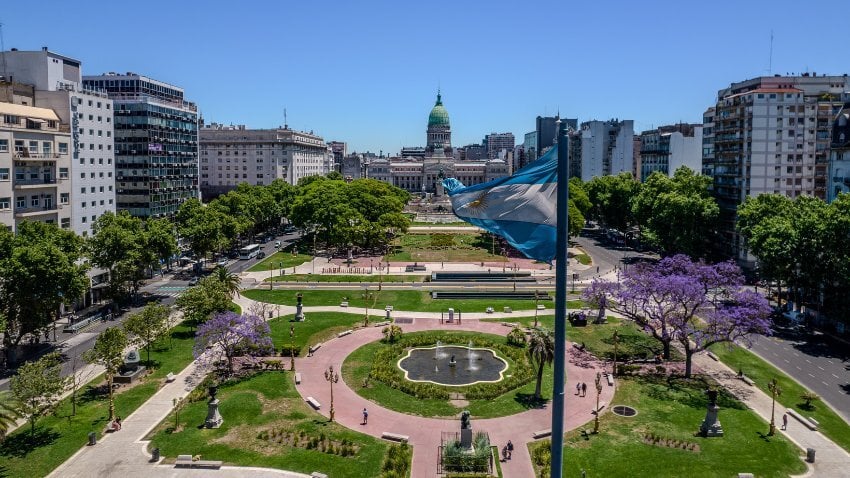Top Things To Do In Panama In 2026
Panama’s geographic size is modest, but its global relevance is not. The country connects two oceans and two continents, operates on a dollarized...

5 min read
Argentina is taking a bold leap forward—on multiple fronts. On July 31st, 2025, the administration of President Javier Milei officially enacted its Citizenship by Investment (CBI) program through Decree 524/2025, offering foreign investors a new, lawful path to Argentine citizenship through qualifying economic contributions.
But that’s not all. In parallel, Argentina has formally submitted its application to rejoin the U.S. Visa Waiver Program (VWP)—a process that, if successful, would allow Argentine passport holders to enter the U.S. visa-free for up to 90 days for tourism or business.
This dual-track strategy is not a coincidence. It’s a deliberate, well-executed plan to position Argentina as a trusted global partner, a magnet for investment, and a leader in secure, rules-based international mobility.
In this article, we’ll break down exactly what the decree says, how the citizenship process will work, the role of Argentina’s new immigration agency, and what this means for investors and expats.
%20program%20isn%E2%80%99t%20just%20legislation%E2%80%94it%E2%80%99s%20a%20strategic%20national%20project.jpg?width=850&height=478&name=Argentina%E2%80%99s%20new%20Citizenship%20by%20Investment%20(CBI)%20program%20isn%E2%80%99t%20just%20legislation%E2%80%94it%E2%80%99s%20a%20strategic%20national%20project.jpg)
Argentina launches a bold citizenship-by-investment plan, welcoming serious investors through a high-integrity, fast-tracked process focused on national growth
Argentina’s new Citizenship by Investment (CBI) program isn’t just legislation—it’s a strategic national project. It’s designed to attract serious investors who are ready to create value, stimulate the economy, and participate in Argentina’s resurgence under President Milei’s bold leadership.
The program was created through Decree 524/2025, which amends Law 346, Argentina’s long-standing citizenship framework. A key change is the insertion of Article 2 bis, which states that any foreigner—regardless of how long they’ve lived in Argentina—can apply for naturalization immediately if they’ve made a “relevant investment” in the country.
This is revolutionary. It bypasses the traditional path that required two years of legal residence and shifts the focus entirely to productive contribution.
What qualifies as a “relevant investment”? That will be defined by the Ministry of Economy, and will likely include:
Direct investment into local businesses
Strategic real estate development
Job-creating ventures in underdeveloped regions
Technology transfer and industrial innovation
Participation in approved government-linked investment platforms
Government officials have floated an indicative threshold of $500,000 USD, but the official criteria are expected to be flexible and tailored to national priorities.
The process is administered by a newly created body: the Agency for Citizenship by Investment Programs (CIPA), which operates under the Ministry of Economy.
CIPA is the central clearinghouse for all CBI applications. Once an applicant submits their file, here’s what happens:
Investment Review: CIPA determines whether the applicant’s investment meets the standard of “relevance.”
Multi-Agency Vetting: If the investment passes, the application is sent to a network of national agencies for background checks, including:
SIDE (Intelligence)
UIF (Financial Intelligence)
RENAPER (Civil Registry)
Criminal Records Registry
Ministry of Security
National Security Evaluation: Agencies assess whether the applicant poses any threat to national interests. This goes beyond financial due diligence—it includes criminal history, sanctions exposure, and integrity screening.
Final Recommendation: Once all reports are in, CIPA consolidates everything into a formal opinion—either to approve or reject the application—and sends it to the National Directorate of Migration.
Decision in 30 Business Days: Migration has one month to respond. If approved, the applicant becomes a full Argentine citizen.
Tax Integration: After naturalization, the applicant is issued a CUIT (tax ID) by ARCA, Argentina’s tax and customs authority.
In other words, this is not a rubber stamp. It’s a high-integrity process with multiple layers of verification.
Related content: Javier Milei Says “Afuera!” To Argentina’s Tax Agency
Argentina’s CBI program stands out for several reasons that make it one of the most compelling options available anywhere. First, there is no residency requirement. Applicants do not need to live in Argentina for years before qualifying. If their investment is approved, they can go straight to naturalization—a dramatic shift from traditional immigration models.
Second, this program offers full citizenship, not just residency. That means a real Argentine passport—consistently ranked among the strongest in Latin America, with visa-free or visa-on-arrival access to 170 countries—and the ability to pass on citizenship to future generations. It’s a permanent status backed by one of the most strategically located countries in the Western Hemisphere.
Third, the program is rooted in law, not politics. This isn’t a trial run or a ministerial loophole. It’s been codified into Argentina’s citizenship law through executive decree and legislative reform. The legal framework is clear, structured, and built to last.
Finally, the CBI program is part of a bigger national vision. It’s not about selling documents—it’s about rebuilding Argentina through foreign direct investment. The government’s goals are ambitious: attract new capital, create jobs, modernize border infrastructure, and reposition the country as a trusted global partner in trade and migration.
President Milei has made it clear: this program is designed for builders, entrepreneurs, and freedom-minded individuals who want to contribute to Argentina’s revival.
Now that the decree is in force and the new agency is operational, the next major development will come from the Ministry of Economy, which is expected to publish official guidelines on what constitutes a qualifying investment. That clarification is anticipated soon.
In the meantime, serious investors should begin preparing now. If you're looking for expert help navigating this new program or building a broader offshore strategy, reach out to us at Expat Money. Whether you're exploring Argentina or a wider portfolio of international residencies and citizenships, we’ll guide you every step of the way.
Argentina is moving fast—and those who act early will be in the strongest position to take advantage of this historic opportunity.
Related content: Javier Milei’s Argentina: Assessing The Prospects For Expats

Kristjen Nielsen praises Argentina’s U.S. visa reforms, calling the country “a stronger friend” as it pushes to rejoin the Visa Waiver Program and deepen U.S. ties
This announcement is part of a much larger story: Argentina’s growing alignment with the United States.
On July 29th, just two days before the CBI program was gazetted, Argentina officially submitted its request to rejoin the U.S. Visa Waiver Program. This would mark a return to a program it was previously part of from 1996 to 2002, before the economic crisis forced its removal.
The VWP application was personally led by Homeland Security Secretary Kristjen Nielsen, who praised Argentina’s efforts to modernize immigration controls. She declared, “Argentina is becoming an even stronger friend to the United States. More streamlined entry will benefit both our nations.”
Related content: Is Argentina One Of The Safest Latin American Countries?

Argentina moves closer to the U.S. as Homeland Security praises Milei’s reforms, visa waivers, immigration upgrades, and stronger bilateral trust are reshaping the nation's future
Argentina is doing what serious countries do: it’s building systems that reward entrepreneurship, enforce security, and open the door to freedom-loving individuals who want to participate in the country’s future.
With the launch of the CBI program and the formal application to rejoin the U.S. Visa Waiver Program, Argentina is sending a message: we are back on the world stage—stronger, freer, and ready to lead.
Ever since Javier Milei was elected President, I’ve had excited, freedom-minded people coming to me asking about Argentina as part of their Plan-B.
While Argentina offers some incredible advantages, becoming a tax resident there comes with its own set of complexities. There isn't a Shangri-La utopia—and that’s okay. What matters is finding a jurisdiction that aligns with your values, your strategy, and your long-term goals.
If you’re looking for a solid Plan-B but don’t know where to start, subscribe to our newsletter and download your free special report: Plan-B Residencies & Instant Citizenships.
If you want the best intel from the expat world, including profitable offshore opportunities, little-known tax-saving strategies, and hard-won insights on immigration, passports, and Plan-B residencies, all delivered to your inbox every single week, then join our daily correspondence, EMS Pulse®. Currently enjoyed by over 84,000 expats and expat-hopefuls worldwide. Fill in the form below to join our newsletter free:

Written by Mikkel Thorup
Mikkel Thorup is the world’s most sought-after expat consultant. He focuses on helping high-net-worth private clients to legally mitigate tax liabilities, obtain a second residency and citizenship, and assemble a portfolio of foreign investments including international real estate, timber plantations, agricultural land and other hard-money tangible assets. Mikkel is the Founder and CEO at Expat Money®, a private consulting firm started in 2017. He hosts the popular weekly podcast, the Expat Money Show, and wrote the definitive #1-Best Selling book Expat Secrets - How To Pay Zero Taxes, Live Overseas And Make Giant Piles Of Money, and his second book: Expats Guide On Moving To Mexico.

Panama’s geographic size is modest, but its global relevance is not. The country connects two oceans and two continents, operates on a dollarized...

Honduras’ newly elected president, Nasry Asfura of the conservative National Party, was sworn in on January 27, 2026. The election, held on November...

For a growing number of Americans, cost-of-living math no longer works. Housing feels harder to reach, everyday costs keep climbing, and long-term...